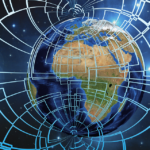"The Internet of Things revolution enables us to access real-time information about our surrounding environment"
An increasing number of everyday objects are being incorporated into the so-called Internet of Things: they connect to the net and interact between themselves and with people. It is a new generation of technology that requires professionals who specialize in the development and application of these new techniques. So we spoke to Antonio Sainz, one of the people behind the new post-graduate degree in the Internet of Things at Isabel I University.

According to Cisco, over 99% of things in the physical world are not yet connected to the Internet but, by 2020, 37 billion “smart” things will be connected up. Are we taking about the next industrial revolution?
The Internet revolution brought with it the streamlining of multiple processes and the spread of ubiquitous, accessible communication while laying the foundations for an enormous source of knowledge and data storage.
The breaking down of barriers between user and machine, combined with machine-to-machine communication, represents yet another step forward in this revolution, a fresh impetus in which systems cooperate with each other, processes are self-sustaining and evolve proactively, and control over our surrounding environment becomes ever more effective.
This will all give rise to a new technology wave which, once embodied in new services and inventions, will drive technological development and socioeconomic growth over the coming decades.
In what ways can the Internet of Things change our everyday lives?
Thanks to IoT (Internet of Things) technology, we are seeing an explosion of new devices that connect both to each other and to the net. This, in turn, is creating a situation whereby huge amounts of real-time information about our surrounding environment is now readily available to us.
So much information about our surrounding environment can enrich our experience and simplify our day-to-day activities by way of new services ranging from an optimized use of energy (with the corresponding savings), through to an added sense of security and confidence when going out or leaving our pet alone at home.
The combination of new interconnectivity technologies, information-sharing paradigms and user-centered services forms the foundations of this revolution, which is already upon us and is bringing new opportunities every day.
Smart Home, Smart City, Energy efficiency... in which ambits are connected objects going to be most useful to the user?
The Internet of Things is applicable to many ambits and will have an important role to play in all of them. The advantages will be seen from many perspectives. For instance, a domestic user will have greater control over their home and be able to regulate the conditions of comfort by measuring different parameters such as temperature and humidity and, based upon these measurement, adjust the air conditioning systems accordingly, leading to significant energy savings.
Being able to connect up everyday objects, such as a plant or an aquarium, will enable users to monitor them and then act accordingly based on the measured parameters. We will have access to previously unavailable data.
Through these connected objects, cities will become smarter, creating an ecosystem that can be used by third parties to develop applications that will improve the typical processes within a city and offer citizens real-time information, such as whether there are any parking spaces available in the area.
The Internet of Things is applicable to many ambits and will have an important role to play in all of them"
The ability to control and monitor street lighting will lead to major savings on energy by reducing consumption as well as CO2 emissions.
In short, the Internet of Things offers innumerable applications in highly heterogeneous sectors and being familiar with the technologies involved will provide a huge competitive edge when confronting new professional challenges.
On an economic and professional level, are new specializations going to be required of both companies and their employees?
The increasing maturity of the Internet of Things market is causing companies to start thinking about new projects, whereby they are seeking new profiles and developing long-term activities that allow them to quickly adapt to the issue of device interconnection.
Creating IoT-related job titles is one of the tasks that large companies, such Texas Instruments or Microsoft, are beginning to take into account when recruiting specialists with vast IoT knowledge capacity.
Today, the most in-demand roles for such activities call for in-depth knowledge of wireless networks, ICT, M2M, sensors, firmware, etc., without being specifically specialized in IoT.
Therefore, the creation of and search for more IoT-specific roles will mean that companies do not focus solely on working with in-house devices or technologies, but rather, due to the incorporation of specialist professionals, are able to work with different ecosystems in a more global manner, adapting each company's needs in order to reduce the time-to-market of their products onto the IoT market.
How and to what extent could the application of IoT improve a company's productivity?
Whatever can be measured can be improved. The IoT revolution brings with it the emergence of a huge number of devices that provide real-time information about everyday objects. All this information can be processed and analyzed to obtain highly detailed knowledge of our surrounding environment.
The benefits of having all this information available to us within a business environment can be directly focused on improving productivity at various levels: improving the supply chain, improving maintenance processes, increasing the energy efficiency of processes, increasing efficiency by having all the information available in real time, etc.
Antonio Sainz is a lecturer for the University Expert in Internet of Things post-graduate course at Isabel I University. He is a Telecommunications Engineer from Valladolid University and has worked for over 10 years in such fields as interactive digital TV, electronic product development, advanced localization systems, home automation, logistics, Smart Buildings, real-time monitoring and control systems, M2M communications and Internet of Things.